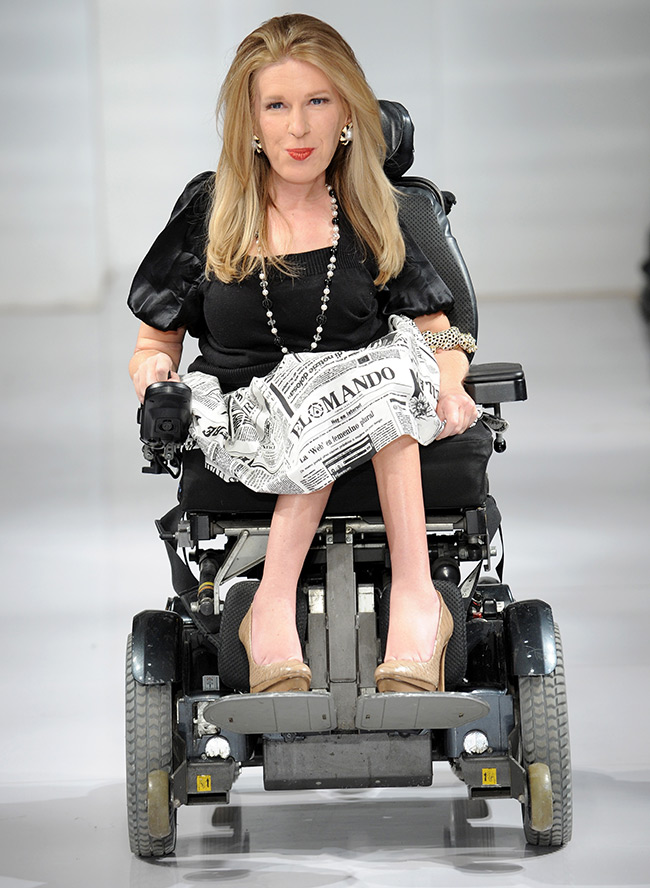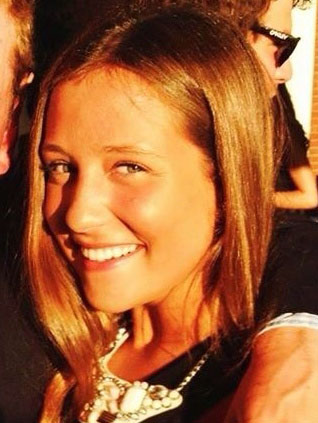Model Danielle Sheypuk hit the runway of Carrie Hammer’s show at Fashion Week on February 6th in New York City wearing a striking black dress and beige pump heels; Her blonde hair was flowing and she sported a beautiful smile. Sounds like any other fashion show, right? Aside from being one of many gorgeous models wearing the designer’s clothes perfectly at Fashion Week, Sheypuk also became the first-ever model in a wheelchair to work the runway. While this is a feat, Sheypuk reminds us that, “My wheelchair is just a part of my body–an extension of me–and I’m the main focus, not the chair” (Kindelan). Hammer’s show featured role models like Danielle Sheypuk, a successful psychologist in New York City at age 35, instead of runway models. This has sparked intriguing dialogue throughout the fashion industry.
In a research project conducted by Shanaaz Majiet, women were asked to write down words that came to their mind when they heard the words “disabled woman” and “woman,” respectively. For the first, many of the research participants left their sheets blank, and those who did write things down wrote words like “lonely,” “sorry,” and “almost lifeless.” For the latter, words written down culminated in themes of motherhood, sexuality, and work. These results define the very core of the problem that we have in our society when it comes to equality. A woman with a disability can be a mother, she can work, she can wear beautiful clothes and she can model. A woman with a disability has maternal and sexual instincts like all women. We must amend these skewed perceptions of people with disabilities, ending the common trend to place individuals with disabilities in a separate and unrelated group from those without disabilities.
If a woman is viewed as “almost lifeless” then it is likely that she is not recognized as a consumer of fashion. Sheypuk says, “I think it’s very important for the spectrum of fashion designers (low- to high-end designers) to recognize their consumers with disabilities, and I don’t think that any designer really does a good job at that. We are essentially never pitched to, and virtually ignored when it comes to fashion” (Spencer). In doing this, all businesses, not just fashion labels, are missing opportunities to tap into a huge consumer market of people with. This is a perfect example of what jjslist.com is working toward—helping businesses to become more disability-aware, expand their consumer bases and practice equality for all.
I commend Carrie Hammer for her work, not only because it has enabled Danielle Sheypuk to take a stand for people with disabilities and have a deserving experience at Fashion Week, but also because she is speaking out for all girls and women. This is especially important for women who are made to feel as though they are not pretty enough or skinny enough and who are not recognized as justifiable consumers of fashion. All businesses and enterprises, Fashion Week included, should be working toward accessibility and equality for all consumers, and in turn abolishing the unrealistic standard of “beautiful” that often leads young girls and women to eating disorders and mental disabilities and flat-out excludes women with disabilities from the fashion industry.
Other Recent Posts
- Business Reviews: The Best Way To Improve Service
- Money Matters: Bank Opens Doors To People With Disabilities
- Polar Plunge: Taking An Icy Dip For A Good Cause
- A Business Model For All Businesses
- SNAILS: Developing Accesible and Welcoming Libraries
- 5 Athletes to Watch In 2014 Winter Paralympics Games
—
About The Author
Eleanor McEnaney is a sophomore at Northwestern University and part-time volunteer at JJ’s List. She has been an active Best Buddy working on the Spread the Word to End the Word campaign and has relevant coursework in Community Integration of Labeled Peoples and Nonprofit Communication Management.







2 Comments
Beautiful article Ms McEnaney! A fine example of what JJslist is All about. Always enjoy the works of people passionate about their work or cause! This shines through in the piece as you point out the destructive tendency of society to view people with disabilities as separate from the common masses. Thank you deeply for sharing such an inspiring story and sharing your resolve with the rest of us society tries not to acknowledge at worst and labels and isolates at best.
Thank you very much for your feedback Mr. Magnuson! I am glad you enjoyed the article!